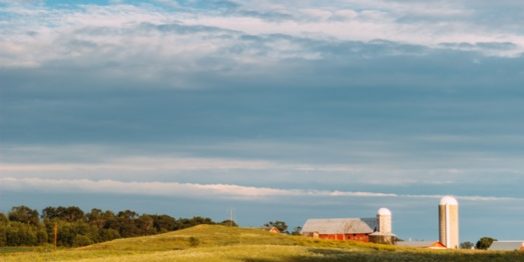In the majority of my blog posts thus far I have encouraged the reader to ask a farmer or industry leader if they have questions about their food supply and the treatment of farm animals. I can only hope that curious consumers are taking my advice and reaching out to the men and women who take pride in producing our food. Then I got to thinking – what if someone genuinely wanted to ask a farmer, but wasn’t sure how to go about doing so?
Here’s a list of simple ways to get in touch with farmers and industry leaders:
Extension
From having worked at a the Alabama Cooperative Extension System for about a year during college, I can assure you that they have more resources than you can imagine. From agriculture, animals, food safety and nutrition to economic development, gardening and youth programs, extension offices have resources on pretty much any topic you can think of . The majority of people who work in extension have masters or doctorate degrees in a specialized field and are always eager to share their knowledge about what they have dedicated their education and life to. Their mission is education and outreach so why not use them as a resource? I also recommend using extension.org for science-based information about agriculture!
Social media
Farmers and ranchers are people too, which means they have social media accounts just like you and me! The smartphone has made ‘agvocating’ in between milking cows, spreading hay and checking on piglets second nature for a lot a farmers. They are able to share their daily experiences on the farm with people around the world who may have never stepped foot on a farm. While the activists who have probably never been to a farm are sharing photos that do not represent what animal agriculture is about, farmers are sharing photos that capture snapshots of what they live and breath everyday. Some farmers take it a step further and write blog posts sharing personal stories and anecdotes about their farm that address hot topics in animal agriculture.
Some of the ‘agvocates’ I follow are: Will Gilmer, Crystal Blin, Val Wagner and Carrie Mess.
State/county agricultural organizations
Every state has a farm bureau that provides ample resources about farming along with educational events and programs like ‘Ag in the Classroom,’ which teaches school children about agriculture through hands-on activities. Most sites have calendars with upcoming events about agriculture you can sign up for to learn and hear what the farmers have to say about certain topics.
To find your state farm bureau visit this map and simply click on your home state.
National commodity group organizations
When I’m searching for fast facts to share about animal agriculture I use the websites of national commodity groups more often than not. The majority of them have designated tabs filled with resources about their specific protein group whether it be pork, beef, dairy, or poultry.
A few of my favorites are: National Chicken Council, North American Meat Institute, National Milk Producers Federation, National Turkey Federation and National Pork Producers Council.
Follow the Alliance
The Animal Agriculture Alliance is an industry united non-profit organization that works to bridge the gap between farm and fork. We are continuously sharing engaging content on our Facebook, Twitter and Pinterest accounts that tells the truth about modern agriculture in hopes of creating a more informed audience. One popular social media campaign we do every week is #MythbustinMonday, which dispels common myths about animal agriculture.
In addition to our social media outreach, we have valuable materials on our website about antibiotics, animal welfare and sustainability that are worth looking at.
If you know a farmer, just ask!
If you live in a town where you know a farmer down the road and you have a question about how your food is produced, just ask – it can really be that simple! Keep in mind that you should ask questions that relate to what that specific farmer is involved with so you can get the best informed answer. Think about it. If you have a questions about pork, you might not want to ask a chicken farmer because although they may be familiar with pork production they may not be an expert, but a pork producer would be the right person to ask.
As you can see, there is more than one way to contact a farmer or industry leader without having to leave the comfort of your own house. These are just a handful of resources that are available to anyone interested in learning the truth about agriculture. If you’re feeling overwhelmed and don’t know where to start, I recommend following a handful of farmers and commodity group organizations on social media. So the next time you have a question about your food and agriculture, do yourself a favor and ask a farmer!
All posts are the opinion of the author and do not necessarily represent the view of the Animal Ag Alliance.








